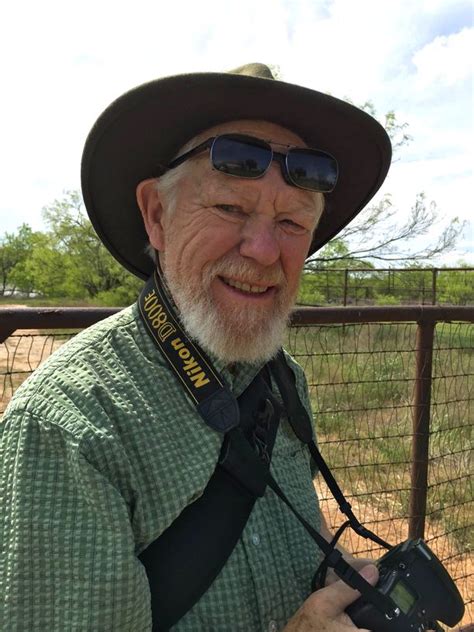A Quote by Simon Critchley
We live in a world that is dominated by science. And that's not a bad thing - not at all. But one of the problems with the scientific worldview is that it leads human beings to have an overwhelmingly theoretical relationship to the world. For example, I no longer accept my being in the world practically and then try to describe that or elucidate that; rather, I see the world theoretically as colors and objects and representations which are fed through my retina into the brain.
Related Quotes
How can we find spiritual meaning in a scientific worldview? Spirituality is a way of being in the world, a sense of one’s place in the cosmos, a relationship to that which extends beyond oneself. . . . Does scientific explanation of the world diminish its spiritual beauty? I think not. Science and spirituality are complementary, not conflicting; additive, not detractive. Anything that generates a sense of awe may be a source of spirituality. Science does this in spades. (158-159)
My single greatest challenge is to remain centered and loving in an overwhelmingly nonvegan world. In today's world, cruelty and exploitation of other beings - human and non-human alike - are accepted, practiced, and profited from by most every institution of society - from commerce and science to education and entertainment. Unfortunately, the vast majority of Homo sapiens are either unaware of the cruelty or accept it as unavoidable and even normal.
It is clear that everybody interested in science must be interested in world 3 objects. A physical scientist, to start with, may be interested mainly in world 1 objects--say crystals and X-rays. But very soon he must realize how much depends on our interpretation of the facts, that is, on our theories, and so on world 3 objects. Similarly, a historian of science, or a philosopher interested in science must be largely a student of world 3 objects.
[M]any people would accept that we do not really have knowledge of the world; we have knowledge only of our representations of the world. Yet we seem condemned by our consitution to treat these representations as if they were the world, for our everyday experience feels as if it were of a given and immediate world.
So far I have been speaking of theoretical science, which is an attempt to understand the world. Practical science, which is an attempt to change the world, has been important from the first, and has continually increased in importance, until it has almost ousted theoretical science from men's thoughts.
Utopians don't say, 'The world's corrupt, women make less money, people of color are oppressed at every turn.' You don't list the problems of the world; you describe a world in which those things aren't the case. The critique is implicit and as a result it's kind of a positive critique. You're not listing what's bad, but rather what would be good - you're oriented toward this positive vision.
The world is not something separate from you and me; the world, society, is the relationship that we establish or seek to establish between each other. So you and I are the problem, and not the world, because the world is the projection of ourselves, and to understand the world we must understand ourselves. That world is not separate from us; we are the world, and our problems are the world's problems.
I am personally thankful that we live together in a large moral house even if we do not drink at the same fountain of faith. The world we experience together is one world, God's world, and our world, and the problems we share are common human problems. So we can talk together, try to understand each other, and help each other.
If you see the intersection of time and space, you experience complete freedom of being. This state of existence is completely beyond any idea of time, space, or being. In that liberated state you can see fundamental truth and the phenomenal world simultaneously. That is called Buddha's world. That is the place where all sentient beings exist, so you can stand up there and see all beings, myriad beings. Then you know very clearly, through your own emotional and intellectual understanding, how all beings exist.
Science, at its core, is simply a method of practical logic that tests hypotheses against experience. Scientism, by contrast, is the worldview and value system that insists that the questions the scientific method can answer are the most important questions human beings can ask, and that the picture of the world yielded by science is a better approximation to reality than any other.
What keeps me up at night in a negative way is, if we don't solve the problems of the human heart and of the human head, of human psychology, there is no technological solution so great that it can prevent the world that is coming, and a world of suitcase bombs or of the ability to pollute the planet in a way that it cannot recover, of global warming and the rest. We've created through science and technology a different world that has frightening sides to it, and psychology and behavioral science has to be part of this. We're going to have to find a way to humanize the culture itself.
I see the experience of pictures as a kind of cycle, a kind of circular motion in which you're in the world, then you enter the picture and you're in a different world (it's not the same as the one you live in, but recognizable as one you might live in). And then you're returned to your world with an enlarged sense of its possibilities.








































